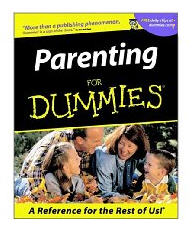If you don?t believe in ?the One? ? and I don?t ? then how can you learn the skills necessary to marry the right person? Or at least, not the wrong one?
 There?s an interesting discussion brewing at Huffington Post today, as Pauline Gaines addresses the idea of courses in family dynamics for high school students. The hope is to develop skills necessary for making better relationship decisions, specifically, better choices when it comes to who to marry, and consequently, helping to reduce the likelihood of divorce.
There?s an interesting discussion brewing at Huffington Post today, as Pauline Gaines addresses the idea of courses in family dynamics for high school students. The hope is to develop skills necessary for making better relationship decisions, specifically, better choices when it comes to who to marry, and consequently, helping to reduce the likelihood of divorce.
Theoretically, if classes were properly structured and well taught, many of these life skills could serve to assist in all relationships.
As for the article on Huff Post Divorce, as usual, some of the comments are jumping into Land of Gender Generalizations, as those who feel they?ve been wronged in their divorces hurl barbs at the opposite sex. But setting aside that negative noise, what about the possibility of reducing the likelihood of choosing ?wrongly??
Making Marriage Work
Better yet, is there a way to up the odds of marrying the right person ? or one who could be more or less ?right? for you?
I can think of plenty of ways to increase the probability of marrying the right person. Among them:
- Do not make marriage the ?be all and end all? in our culture
- Eliminate the state-specific differences in age at which you can marry
- Require a waiting period before marriage
- Incorporate classes in relationship dynamics as part of Elementary and Middle School curricula, possibly continued into High School
And it is the last point which lies at the heart of the article at Huff Post Divorce.
Still, if these classes (much like Sex Ed) could actually be properly designed, who would teach them? What would they consist of? How to make them ?politically correct? in all ways? How might they be incorporated into a variety of other classes ? perhaps encouraged through teamwork in core curricula?
Why must these classes be seen purely as stepping into the personal realms of family dynamics?
I will cite my own writing on Making Marriage Work, and the necessity of relationship skills:
? what we really need is relationship education, regardless of purpose?
Wouldn?t we all benefit from learning to get along with each other? To give and take? To clearly state what we need and want? To attentively listen? To negotiate? To reacquaint ourselves with the basics of respect over disdain and narcissism?
Teaching Kids Life Skills
We don?t all grow up in Picture Perfect Two Parent Households. The married parents of my (Boomer) generation frequently involved a mother at home (possibly unhappy at that), and a father who made an appearance on cue ? at dinner time, mowing the lawn, serving as tie-breaker disciplinarian.
 As for examples of how two loving adults deal with each other?
As for examples of how two loving adults deal with each other?
Not so much.
Our family configurations today are far more varied and complex. The pressures we live with economically, just to make ends meet, are enormous. Add in the expectations of parental involvement ? and we?re frequently overwhelmed. (Naturally, none of this helps our partnerships.)
Surely many of our children aren?t seeing exemplary relationship skills at home, so where will they learn them? Where do we learn them, since despite all the parenting guidebooks, few of us come to the table without scars of our own?
Planting Relationship Recognition Seeds
Is it crazy to think that we could plant the seeds to grow good relationships? To recognize them, to nurture them, to protect ourselves from what is truly toxic? Can we provide models for our kids to learn from ? even if we can?t offer two adults in a working partnership, as we raise them?
Ideally, we can experience examples of empathy, communication, conflict resolution, compromise, respect, humor, affection, love ? and more ? throughout our various communities. Relatives or friends may offer a glimpse, or a significant resource. Yes, our children are sponges ? but they can learn from everywhere; they pocket what they absorb ? good and bad ? and basic relationship skills could assist in their making sense of what they?re observing and feeling.
I believe they can learn some of the tools needed for good decisions in all relationships, if we encouraged talking and listening, observing and working together.
Teacher Expectations ? Overload
I don?t believe we should expect miracles of our teachers. They?re already overworked, underpaid, undervalued in our culture ? and far too pressed to help our children ?succeed? rather than to help them learn.
As it is, they are often asked to play parental roles, or to take on more responsibility that the child himself or herself ought to own.
 Years ago, I volunteered in the public elementary school where my children were in class. I was working full-time as well, but my employer cut me some slack now and then so I could run an occasional art project. I would show up with bags of supplies, and assignments that encouraged imagination from the kids, combining individual contributions with an overall team goal.
Years ago, I volunteered in the public elementary school where my children were in class. I was working full-time as well, but my employer cut me some slack now and then so I could run an occasional art project. I would show up with bags of supplies, and assignments that encouraged imagination from the kids, combining individual contributions with an overall team goal.
By 4th and 5th grades, the kids were very receptive to principles of planning, communication, and necessary collaboration. These are easier to build on when you?ve laid the groundwork.
And frankly, we?re talking basics to those of us in the corporate world, and not so different from what is taught through team sports ? without the win-lose mentality and cut-throat competition. And it?s that win-lose dynamic that is often so damaging in our romantic relationships.
Cooperation, Collaboration, Communication
The kids quickly understood that if a project required cooperation of everyone, that meant choosing a leader to coordinate and follow up, compromising in order to work together, communicating when there was conflict.
It also meant some sensitivity to their team members ? who was tired, who was having a bad day, who had something on his mind, who was struggling with the task. Observing, assessing, asking questions, listening.
10-year olds, 11- year olds, 12-year olds?
They?re more than capable of these skills. We simply need to model them, and guide them through the process. And maybe management-type exercises ? and parents with these skills ? are part of the answer.
And Marriage?
I can?t say that I will ever marry again. I gave my idealism and my trust once; when you experience living with lies in marriage, when you have suffered abuses of various sorts, when you have seen or felt yourself becoming someone or something ?less? than you are, it?s difficult to imagine yourself in such a position of potential vulnerability again.
 Still, I believe in love, respect, intimacy, and sharing life as a couple in a committed relationship with someone I cherish.
Still, I believe in love, respect, intimacy, and sharing life as a couple in a committed relationship with someone I cherish.
How that arrangement is configured?
It may not look like your version of partnership, but then, it really doesn?t have to. It may not involve the sacraments (or legal intricacies) of marriage. Then again, there?s the story of those 90-something newlyweds. Never say never, right?
For those who do wish to marry, I return to the importance of truly knowing who it is you are joining your life to, as your family. I repeat my usual ?marital advice? ? the necessity of time together, of shared values, of hearing and voicing each others? needs in non-damaging ways, of like libido.
It?s impossible to guarantee anything when it comes to the human heart or our behaviors, much less what life will throw our way to deal with. But surely, education of all sorts cannot hurt, and if achieved ? as the article suggests ? possibly do a great deal of good.
? D. A. Wolf
![]()
Big Little Wolf?s Daily Plate of Crazy
Source: http://dailyplateofcrazy.com/2012/03/24/how-to-marry-the-right-person/
cujo greg kelly karen handel hangout todd haley kareem abdul jabbar tim lincecum
No comments:
Post a Comment
Note: Only a member of this blog may post a comment.